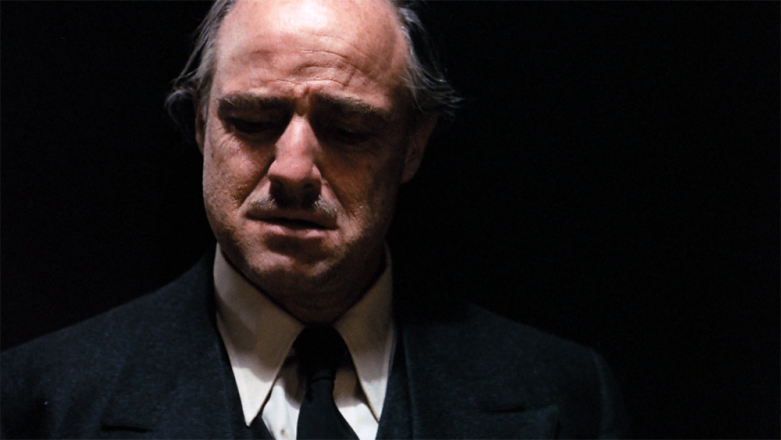Reviews
Francis Ford Coppola
USA, 1972
Credits
Review by Rumsey Taylor and Timothy Sun
Posted on 09 February 2011
Source Paramount DVD
Categories Blind Spots
I’ll make him an offer he can’t refuse.
Introduction by Timothy Sun
So firmly atop the pantheon of great films do the Corleones sit that even those who have somehow managed to avoid seeing the Godfather films have likely not succeeded entirely—Brando’s bulldog jaw and throaty rasp; the horse’s head; young Vito seeing the Statue of Liberty; DeNiro trailing the Don over Little Italy’s rooftops; “I’ll make him an offer he can’t refuse”; Nino Rota’s haunting score. Anyone even remotely interested in film - or American popular culture - is familiar, probably intimately so, with at least these snippets from The Godfather. For me, as an aspiring young film nerd, watching these films (yes, even the third one) was something like a rite of passage, a sort of baptism into serious cinephilia. I still remember clearly: I was around 13 and my dad, knowing that I had suddenly fallen hard into movies, brought back from the video store one Friday The Godfather. We watched all together as a family, appropriately. The overwhelming feeling that I still recall from that first viewing was the epic sweep of the film—the amount of time, geography, character, and sheer narrative it covered in its sprawling running time. I was hooked. The next Friday, my dad brought back Part II, and the Friday after that, Part III.
I’ve seen them all countless times since then, the original probably my most re-watched film. I find myself more moved by the films (yes, even the third one) each time I watch them, even though I wasn’t particularly emotionally invested on my initial viewings. I was focused too much on the overall operatic form, the solemn and stately classicism that Coppola brought to his pulpy material (surely Godfather I & II qualify as near-perfect examples of classical narrative form). Perhaps I was just too young to appreciate the density of feeling saturating the film, the utterly natural and lived-in closeness of the characters. For in the end, while the film set the template for how we conceive of the Mafia, the film is about family (small “f”) more than anything else. I always found Coppola’s protestations that The Godfather steered his career away from the kinds of “personal” films he wanted to make to be disingenuous—these were the most personal films Coppola would ever make. The films ring so true because Coppola imbued them with his Italian heritage, his family’s immigrant background, his knowledge of how an ethnic minority community interacts. Hell, he cast his sister and daughter and commissioned his father to help write the score (for Part II)! In the process, he told the Great American story: the immigrant story, the story of self-made striving, of the death of Old World sensibilities at the hands of the second-generation’s ruthless - and All-American - capitalistic decadence. The Godfather films remain so powerful, so ubiquitous, because in the Corleones we see the American Dream—and in turn, ourselves.
Review by Rumsey Taylor
The existence of this publication was compelled by a particular, if subliminal notion: that older films are generally easier to write about than newer ones. Newer ones encounter a sort of competition, especially in the current era of film criticism, which is seemingly at its most democratic and populated. Films are canonized, laureled or demeaned within moments, always before they’re publicly distributed, as opposed to the comparatively glacial pace at which it generally took older films to arrive at their deserved extent of acclaim.
I prefer not to participate in this race toward canonization for new films, because the more laureled, the more popular and seen a film becomes, the less integral its criticism—it is as if once a film is viewed a certain number of times, a proper evaluation emerges, and this evaluation remains largely unaffected by contrary assessments. Criticism exists to validate an art, so what purpose does it serve art that is so popularly comprehended? Obviously, there is a purpose in this - it’s fun to play contrarian, always, and the public consensus is often wrong - but asserting this purpose is, for me, difficult.
This is why it took me over three decades to see The Godfather and its equally esteemed sequel. They are with no hyperbole whatsoever two of the most critically lauded films ever. A summary of their combined renown:
- Prominent ranking on most every list of the best films ever made
- An inexorable influence on every single gangster film made hence
The Godfather belongs to a subset of films about which I suspect I will have absolutely nothing new to report, and as such motivation to watch it climaxes in a little more than a casual curiosity. Responses to it have been so widespread that very nearly every person I have come in contact with has seen and enjoyed it. It is an endorsement so commonly impassioned that I feel I am familiar with the film by virtue of absorption.
Prior to seeing both films, I knew of their iconic scores, performances, and key scenes, most of them from the first film. What I hadn’t anticipated was the strength of the supporting characters. In particular, James Caan in Part I, whose casual temper is somehow epitomized in his dress slacks and tank top ensemble, punctuated in suspenders and a pair of hairy shoulders. There is also Dianne Keaton, something of a fulcrum for Michael Corleone’s transition into the Don in the same film, who inhabits a role whose privilege and luxury is enabled expressly by deception. And my favorite: Fredo in Part II. He is a character so tragic that he is almost singularly responsible for engendering the series’ pathos.
Anchoring all the performances are Marlon Brando, Robert DeNiro, and Al Pacino, who portray the Don and his son at multiple generations: from young Vito’s immigration to the United States at the birth of the century to his son’s, Michael, assumption of the family business a generation later, and his futile attempt to make the business legit. What the first two Godfather films depict, by and large, is the same thing: that the aspect of the mob and violence is an afterthought to the concept of family, of asserting one’s place in a country they have vulnerably entered.
If there is a surfacing trend in this feature, then it’s that blind spots sometimes provide experiences different from those anticipated—Rocky’s romance, for example, or High Noon’s lack of Americanness. The Godfather was less perversely about the foundation of a mob network than it was the foundation of a family—a family that has seen difficulties most do not, and one that faces these difficulties with utmost rationale and tenderness. I watched awaiting the sudden spill of oranges across an alley street that punctuates Vito’s death, Sonny’s hyper-violent death scene in which he is pelted by bullets from every possible direction, the revelation of a decapitated horse, and the image of Michael’s face as it comes to a boil in anger as he confronts the man who ordered his father’s death. What I remember now, more than anything else, is Fredo’s desperate embrace of his brother Michael at their mother’s funeral, a climax of emotion so intense that one forgives the near-fatal injustice that preceded it.
The Godfather is a film that confronts my insecurities as a writer because it invites no criticism whatsoever. There is no better way to alienate a readership than to naively and incapably disagree with what they like, and no better way to bore them than to redundantly support the consensus. But in the interest of confronting this insecurity, and in conclusion, I opt to describe the circumstances of my viewing: this past year it was made aware to one of my friends that I had seen neither of these films, an admission so apparently offensive that a plan was made - at that moment, near midnight on a Saturday - to see it immediately. This encouraged a hesitance I’ve been practicing all my life, but it was finally not enough, and I stipulated that I would need some coffee before the proceedings. Over three hours later, the single cup of coffee served to me remained untouched at my side.
I couldn’t wait to see the sequel.
More Blind Spots
-

Pee-wee’s Big Adventure
1985 -

The Matrix
1999 -
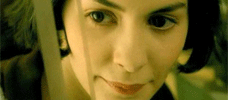
Amélie
2001 -
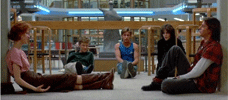
The Breakfast Club
1985 -
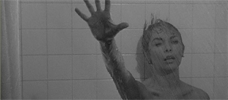
Psycho
1960 -
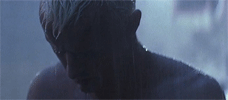
Blade Runner
1982 -
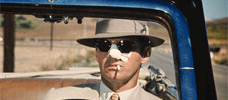
Chinatown
1974 -
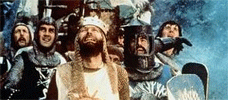
Monty Python and the Holy Grail
1975 -

Rocky
1976 -
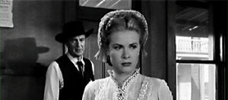
High Noon
1952 -

Ferris Bueller’s Day Off
1986 -
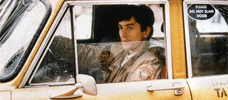
Taxi Driver
1976 -
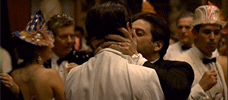
The Godfather
1972 -

E.T.
1982 -
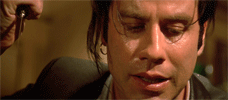
Pulp Fiction
1994
We don’t do comments anymore, but you may contact us here or find us on Twitter or Facebook.



